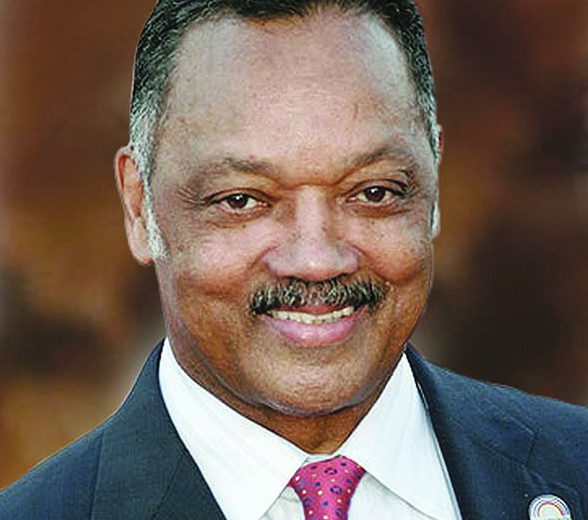Opinion
Opinion: South Carolina Heads Down a Dead-end Street in Rejecting Medicaid Expansion

South Carolina’s James Louis Petigru was a Civil War-era lawyer, judge, congressman and most notably the attorney general who opposed South Carolina’s use of nullification of federal laws and, after Abraham Lincoln was elected president in 1860, opposed state secession.
He famously quipped, after learning that his state had seceded from the Union, “South Carolina is too small to be a republic and too large to be an insane asylum.”
While not insane, the state was a little nutty when it rejected Medicaid expansion under the Affordable Care Act (ACA). South Carolina has one of the highest percentages of uninsured people in the country.
The leaders of the state are leading the people down a dead-end street. They support tax cuts for the rich and health care cuts for the poor. South Carolina is a red state with blue needs — more health care, less poverty, better schools and fewer jails.
Nikki Haley, the former governor of South Carolina and President Donald Trump’s former ambassador to the United Nations, was born in Bamberg, South Carolina, a small city of approximately 3,600 people.
The Bamberg County Hospital, where Haley was born, closed on April 30, 2012 for lack of money. Not only did people lose health services but Bamberg County Hospital workers lost their jobs.
Many other small rural hospitals and workers faced the same fate in South Carolina when the state rejected the $10 billion over 10 years it would have received if it had expanded Medicaid.
A recent article in the Greenville News reported that when hospital beds fill up in the state, patients are boarded in emergency rooms. It is inhumane and economically foolish and morally wrong to argue against expanding Medicaid when 50,000 jobs and greater health care is involved.
Arguing against keeping rural hospitals open, like Bamberg County, makes no sense. It’s arguing for sickness and unnecessary death.
It’s a national problem, but recently South Carolina’s Greenville News documented the situation locally when 80-year-old Ron Miller of Pickens County collapsed at home two days after surgery and had to be rushed back to the hospital and readmitted. The problem was there were no available beds at that hospital or any of the hospitals in Greenville.
The paper reported, “The phenomenon, called boarding, occurs when hospitals hold patients in the ER until they find a bed for them on a medical floor.” Dr. Ryan Stanton, a spokesman for the American College of Emergency Physicians, an ER physician with Central Emergency Physicians in Lexington, Kentucky, has indicated it’s a growing problem across the nation. It’s a simple problem of supply and demand.
There are more patients than there are beds. A further concern is whether patients forced to stay in the ER for long periods of time have the same equipment made available to them and receive the same level of care that those in hospital beds receive.
Expanding Medicaid could help, but South Carolina is a state that pretends to resent big government and federal dollars, even though 32 percent of its general revenue comes from Washington for education, health care, airports, highways, seaports, the big military presence in the state and more. South Carolina couldn’t exist without federal dollars. It, apparently, just doesn’t want to receive Medicaid funds for its neediest citizens.
There is a better South Carolina on the horizon and Congressman Joe Cunningham (SC-01) is an example. He’s the new Democrat from the Lowcountry and he’s worked to reinstate the ban on offshore drilling, protect Lowcountry jobs from damaging tariffs and fix South Carolina’s ailing infrastructure. On Jan. 3, 2019, he said he was “ready to roll up his sleeves and get to work” and he has. South Carolina needs more Joe Cunninghams.
We all do.
Arts and Culture
BOOK REVIEW: Love, Rita: An American Story of Sisterhood, Joy, Loss, and Legacy
When Bridgett M. Davis was in college, her sister Rita was diagnosed with lupus, a disease of the immune system that often left her constantly tired and sore. Davis was a bit unfazed, but sympathetic to Rita’s suffering and also annoyed that the disease sometimes came between them. By that time, they needed one another more than ever.

By Terri Schlichenmeyer
Author: Bridgett M. Davis, c.2025, Harper, $29.99, 367 Pages
Take care.
Do it because you want to stay well, upright, and away from illness. Eat right, swallow your vitamins and hydrate, keep good habits and hygiene, and cross your fingers. Take care as much as you can because, as in the new book, “Love, Rita” by Bridgett M. Davis, your well-being is sometimes out of your hands.
It was a family story told often: when Davis was born, her sister, Rita, then four years old, stormed up to her crying newborn sibling and said, ‘Shut your … mouth!’
Rita, says Davis, didn’t want a little sister then. She already had two big sisters and a neighbor who was somewhat of a “sister,” and this baby was an irritation. As Davis grew, the feeling was mutual, although she always knew that Rita loved her.
Over the years, the sisters tried many times not to fight — on their own and at the urging of their mother — and though division was ever present, it eased when Rita went to college. Davis was still in high school then, and she admired her big sister.
She eagerly devoured frequent letters sent to her in the mail, signed, “Love, Rita.”
When Davis was in college herself, Rita was diagnosed with lupus, a disease of the immune system that often left her constantly tired and sore. Davis was a bit unfazed, but sympathetic to Rita’s suffering and also annoyed that the disease sometimes came between them. By that time, they needed one another more than ever.
First, they lost their father. Drugs then invaded the family and addiction stole two siblings. A sister and a young nephew were murdered in a domestic violence incident. Their mother was devastated; Rita’s lupus was an “added weight of her sorrow.”
After their mother died of colon cancer, Rita’s lupus took a turn for the worse.
“Did she even stand a chance?” Davis wrote in her journal.
“It just didn’t seem possible that she, someone so full of life, could die.”
Let’s start here: once you get past the prologue in “Love, Rita,” you may lose interest. Maybe.
Most of the stories that author Bridgett M. Davis shares are mildly interesting, nothing rare, mostly commonplace tales of growing up in the 1960s and ’70s with a sibling. There are a lot of these kinds of stories, and they tend to generally melt together. After about fifty pages of them, you might start to think about putting the book aside.
But don’t. Not quite yet.
In between those everyday tales, Davis occasionally writes about being an ailing Black woman in America, the incorrect assumptions made by doctors, the history of medical treatment for Black people (women in particular), attitudes, and mythologies. Those passages are now and then, interspersed, but worth scanning for.
This book is perhaps best for anyone with the patience for a slow-paced memoir, or anyone who loves a Black woman who’s ill or might be ill someday. If that’s you and you can read between the lines, then “Love, Rita” is a book to take in carefully.
Activism
Faces Around the Bay: Author Karen Lewis Took the ‘Detour to Straight Street’
“My life has been a roller-coaster with an unlimited ride wristband! I was raised in Berkeley during the time of Ron Dellums, the Black Panthers, and People’s Park. I was a Hippie kid, my Auntie cut off all our hair so we could wear the natural styles like her and Angela Davis.

By Barbara Fluhrer
I met Karen Lewis on a park bench in Berkeley. She wrote her story on the spot.
“My life has been a roller-coaster with an unlimited ride wristband! I was raised in Berkeley during the time of Ron Dellums, the Black Panthers, and People’s Park. I was a Hippie kid, my Auntie cut off all our hair so we could wear the natural styles like her and Angela Davis.
I got married young, then ended up getting divorced, raising two boys into men. After my divorce, I had a stroke that left me blind and paralyzed. I was homeless, lost in a fog with blurred vision.
Jesus healed me! I now have two beautiful grandkids. At 61, this age and this stage, I am finally free indeed. Our Lord Jesus Christ saved my soul. I now know how to be still. I lay at his feet. I surrender and just rest. My life and every step on my path have already been ordered. So, I have learned in this life…it’s nice to be nice. No stressing, just blessings. Pray for the best and deal with the rest.
Nobody is perfect, so forgive quickly and love easily!”
Lewis’ book “Detour to Straight Street” is available on Amazon.
Activism
Oakland Post: Week of April 23 – 29, 2025
The printed Weekly Edition of the Oakland Post: Week of April 23 – 29, 2025

To enlarge your view of this issue, use the slider, magnifying glass icon or full page icon in the lower right corner of the browser window.
-

 Activism4 weeks ago
Activism4 weeks agoOakland Post Endorses Barbara Lee
-

 Activism3 weeks ago
Activism3 weeks agoOakland Post: Week of April 2 – 8, 2025
-

 #NNPA BlackPress3 weeks ago
#NNPA BlackPress3 weeks agoTrump Profits, Black America Pays the Price
-

 Activism2 weeks ago
Activism2 weeks agoOakland Post: Week of April 9 – 15, 2025
-

 #NNPA BlackPress3 weeks ago
#NNPA BlackPress3 weeks agoHarriet Tubman Scrubbed; DEI Dismantled
-

 #NNPA BlackPress3 weeks ago
#NNPA BlackPress3 weeks agoTrump Targets a Slavery Removal from the National Museum of African-American History and Culture
-

 #NNPA BlackPress3 weeks ago
#NNPA BlackPress3 weeks agoLawmakers Greenlight Reparations Study for Descendants of Enslaved Marylanders
-

 #NNPA BlackPress3 weeks ago
#NNPA BlackPress3 weeks agoNew York Stands Firm Against Trump Administration’s Order to Abandon Diversity in Schools














































